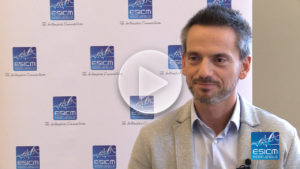TRansfusion strategies in Acute brain INjured patients: TRAIN Study
Q&A
What?
TRAIN (TRansfusion strategies in Acute brain INjured patients) is a prospective multicentre randomised interventional study.
Why?
This trial will assess the impact of two different strategies to administer blood transfusions in a large cohort of critically ill patients with a primary brain injury. The results of this trial may help to better manage blood products and transfusion thresholds in this specific patient population and will provide additional data in some sub-groups of patients at high-risk of brain ischaemia, such as those with an intracranial hypertension or developing cerebral vasospasm.
When?
Data collection has started early 2016. Randomization of patients has been stopped on 31 December 2022. Follow-up of patients is still possible.
What data is required?
Screening:
All patients admitted to the ICU because of a TBI, SAH or intracranial haemorrhage (ICH) will be screened for study eligibility during the first 10 days after the initial injury. Anaemia is defined as haemoglobin (Hb) < 9 g/dL and should occur within this time period. A log list will be kept of all patients who are screened for the study. If a patient is considered as ineligible for the study, the reason will be recorded as for eligible patients who decide not to participate in the study. No other particular information for such patients will be recorded. Inclusion and exclusion criteria are to be checked by the attending physician and confirmed by the local investigator. (For more details, see the protocol).
Data Collection:
Data collection on admission includes: demographic characteristics; comorbidities; source of admission; primary and secondary admission diagnoses; APACHE II score (the worst of the first 24 hours); SOFA score on admission; GCS immediately after injury; GCS on hospital admission after initial resuscitation; initial Hb concentration; sodium (mEq/L) and glucose (mg/dL) levels. There will be specific data collected for patients with TBI, with SAH, with ICH. (For more details, see the protocol).
Follow-up:
Subjects will be followed until death or hospital discharge. If alive, but not in the hospital after 180-200 days following injury, neurological status will be evaluated by a visit with a neurologist (blinded to the assignment to one of the two arms of therapy); if not possible, the GOS will be completed with the General Practitioner (GP) or after a 5-min telephone interview performed by a nurse or doctor not involved in the study or in management of the patient.
Do I need IRB approval?
National coordinators will obtain IRB approval for their centres.
How is the data that is collected managed?
All data is annonymised and cannot be linked to individual subjects. The data is stored securely and all procedures regarding data management will comply with EU directive on data protection 95/46/EC.
Who owns and can access the collected data?
Each site investigator is responsible for his own data and may request an export of this data after the database is locked. The request should be addressed to the Principal Investigator.
Is there any financial compensation?
No. Participation in the trial is completely voluntary. This study will provide important data on transfusion strategies in acute brain injured patients.
What about authorship?
Results from the trial will be published by the TRAIN nominated writing Committee. All National Coordinators (NC) will have their efforts recognised by being listed in the paper. Due to the potential high number of centres that we hope will include patients, we have to limit to two names of local collaborators (the lead investigator and the co-investigator). Along with the national coordinators, they will be acknowledged as collaborators in the authorship of the paper and as such, listed in PubMed.
How do I participate?
The selection of participating ICUs has been initiated within the Neuro-Intensive Care (NIC) Section of the European Society of Intensive Care Medicine (ESICM), with the identification of national investigators which have thereafter selected any potential ICUs with neurosurgical facilities and an adequate numbers of patients (>50) with an acute brain injury admitted per year.
Registration of centres is closed.
Any further Questions?
If you have additional questions regarding TRAIN, please contact Fabio Silvio Taccone.
Documents
• Protocol
Media
TRAIN Principal Investigator Fabio Taccone updates us on the progress of this exciting Trials Group Study (Spring 2018).

Contact
For more information, please contact Guy FRANCOIS at research@esicm.org